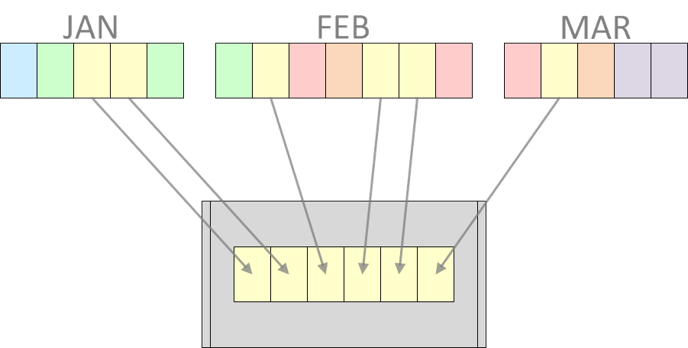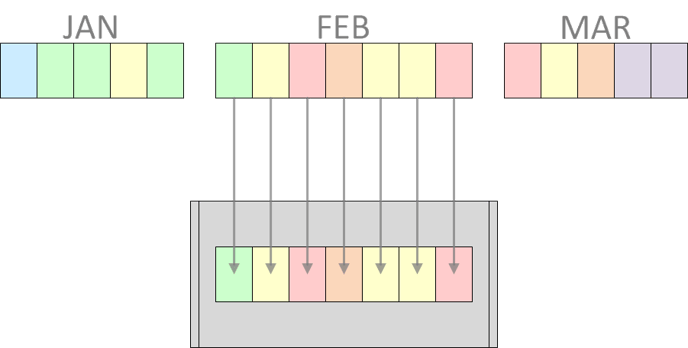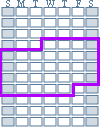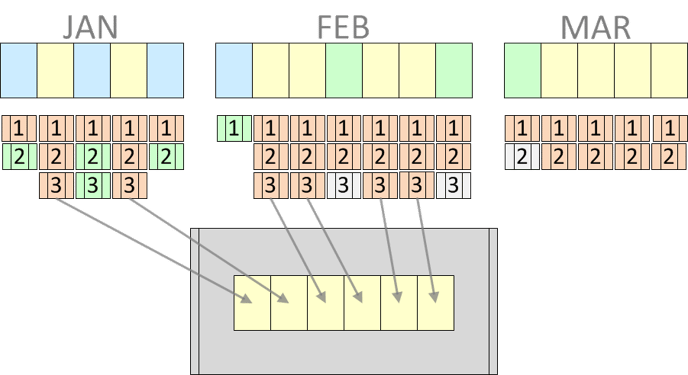The Different Invoice Types in AngelTrack
A quick walkthrough of the different types of invoices, and how they might be used
AngelTrack's Invoice Generators gather up dispatches to be billed together in an invoice. There are four methods of selecting dispatches for inclusion:
- Differential,
- Complete,
- Collections, and
- Custom.
If you have not yet read the Invoicing guide, or understand the postprocess workflow, go and read about those first.
Differential Invoices
A differential invoice gathers up all dispatches waiting at Billing office invoicing, regardless of date.

This will include:
- all direct-bill dispatches that have reached Billing office and are not yet invoiced
- all insured dispatches kicked back from insurance as denials, or with copays due
- all previously invoiced dispatches that were not paid in full by their prior invoice
 The aforementioned items are "in the invoicing bucket", meaning they have a balance owing and the customer needs to be billed. It makes no difference what date the dispatch was originally run; a differential invoice empties out the entire bucket.
The aforementioned items are "in the invoicing bucket", meaning they have a balance owing and the customer needs to be billed. It makes no difference what date the dispatch was originally run; a differential invoice empties out the entire bucket.
It does NOT include dispatches still working their way through QA, because the QA process can change the service provided, the billable mileage driven, and the billable standby time spent.
Anything "Awaiting payment" is excluded
Differential invoices do not include dispatches that are already marked Awaiting payment, on the understanding that those dispatches have already been claimed / billed / invoiced and so there is no need to mention them again. Hence the name "differential": it includes only the differences from the previous invoice. Therefore, the recipient of a differential invoice must understand that it extends, rather than replaces, any prior invoice.
Complete Invoices

A complete invoice gathers up all dispatches over a date range, without regard to postprocess status or to previous invoices.
This will include:
- all dispatches in the date range that are at Billing office and ready for a differential invoice,
- all dispatches in the date range but still working their way through QA, including unfinished reports,
- all dispatches in the date range already invoiced and marked Awaiting payment, and
- all dispatches in the date range that have no balance owing, if you ☑ choose to include them.
 Because it includes dispatches still working their way through QA, prices can change after invoicing. When that occurs, the invoice will (when paid by the customer) overpay or underpay the dispatch in question. The dispatch will therefore go back to the Billing office again for re-invoicing, instead of advancing to Finished.
Because it includes dispatches still working their way through QA, prices can change after invoicing. When that occurs, the invoice will (when paid by the customer) overpay or underpay the dispatch in question. The dispatch will therefore go back to the Billing office again for re-invoicing, instead of advancing to Finished.
The recipient of a complete invoice must understand that it supersedes any prior invoice for the same date range, because it will be including all the same dispatches as before (with updated balances due).
Complete invoices are usually requested by facilities, rather than patients, in order to book their transport expenses by month. If a previous month's invoice was not paid in full, then that month must be invoiced again -- a hassle which does not occur when using differential invoices to vacuum up all unfinished dispatches.
Collections Invoices
A collections invoice gathers up all dispatches that have been previously invoiced too many times without payment in full. You can decide the number of times invoiced as the cutoff; the default is three times.

The collections invoice gathers up aging receivables, so that the necessary data can be easily exported for use by your collections agency. There are two different collections data formats; one or the other should suit your collections agency.
After exporting that collections data, mark the invoice as "Sold"; AngelTrack will then automatically move all included dispatches to Finished.
To learn more about how AngelTrack automates and manages the sale of receivables to a collections agency, refer to the Sold Receivables Guide.
Custom Invoices
A custom invoice allows you to explicitly control the selection filters, in order to choose dispatches for inclusion by any rhyme or reason you desire.
It is a good way to calculate quick mockups, if a facility or a salesperson calls in to ask for an estimate or a projection.
The Express Invoicer
The Express Invoicer can create two of the above four types of invoice: Collections and Differential. The two are used together in a monthly reinvoicing workflow, where AngelTrack continuously reinvoices your customers until all balances are zero. To learn more, read the Reinvoicing Guide.
Invoice with Multiple Counterparties
Each invoice in AngelTrack has a single counterparty -- be it a facility, or an affiliate, or a patient.
You can mail or email an invoice to whomever you like, but as far as AngelTrack's records are concerned, only a single counterparty is liable.
If you need to divide an invoice in half, such as separating wheelchair from stretcher, you can use the invoice generator's filters to create two separate invoices.